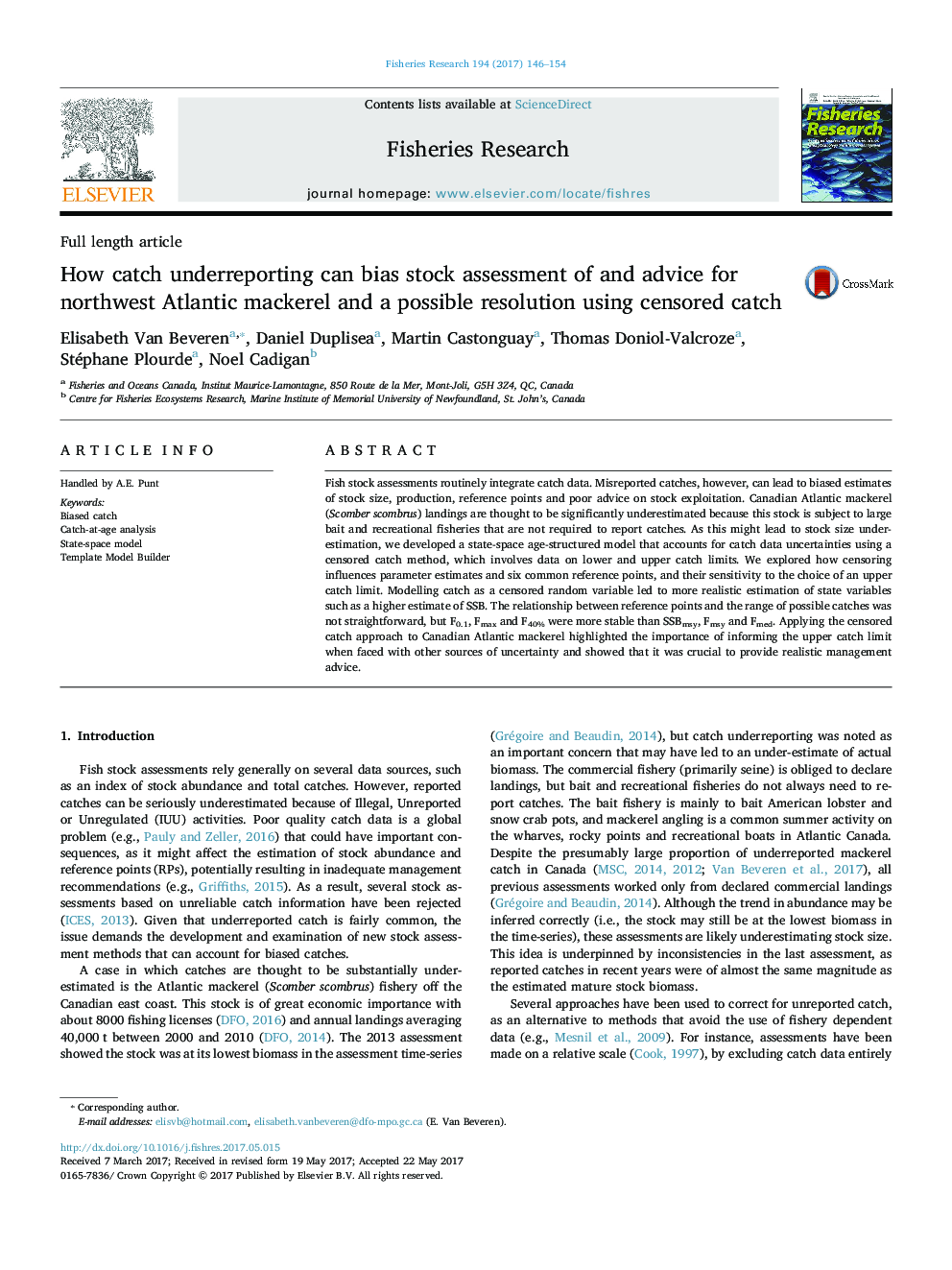| Article ID | Journal | Published Year | Pages | File Type |
|---|---|---|---|---|
| 5765425 | Fisheries Research | 2017 | 9 Pages |
Abstract
Fish stock assessments routinely integrate catch data. Misreported catches, however, can lead to biased estimates of stock size, production, reference points and poor advice on stock exploitation. Canadian Atlantic mackerel (Scomber scombrus) landings are thought to be significantly underestimated because this stock is subject to large bait and recreational fisheries that are not required to report catches. As this might lead to stock size underestimation, we developed a state-space age-structured model that accounts for catch data uncertainties using a censored catch method, which involves data on lower and upper catch limits. We explored how censoring influences parameter estimates and six common reference points, and their sensitivity to the choice of an upper catch limit. Modelling catch as a censored random variable led to more realistic estimation of state variables such as a higher estimate of SSB. The relationship between reference points and the range of possible catches was not straightforward, but F0.1, Fmax and F40% were more stable than SSBmsy, Fmsy and Fmed. Applying the censored catch approach to Canadian Atlantic mackerel highlighted the importance of informing the upper catch limit when faced with other sources of uncertainty and showed that it was crucial to provide realistic management advice.
Keywords
Related Topics
Life Sciences
Agricultural and Biological Sciences
Aquatic Science
Authors
Elisabeth Van Beveren, Daniel Duplisea, Martin Castonguay, Thomas Doniol-Valcroze, Stéphane Plourde, Noel Cadigan,
